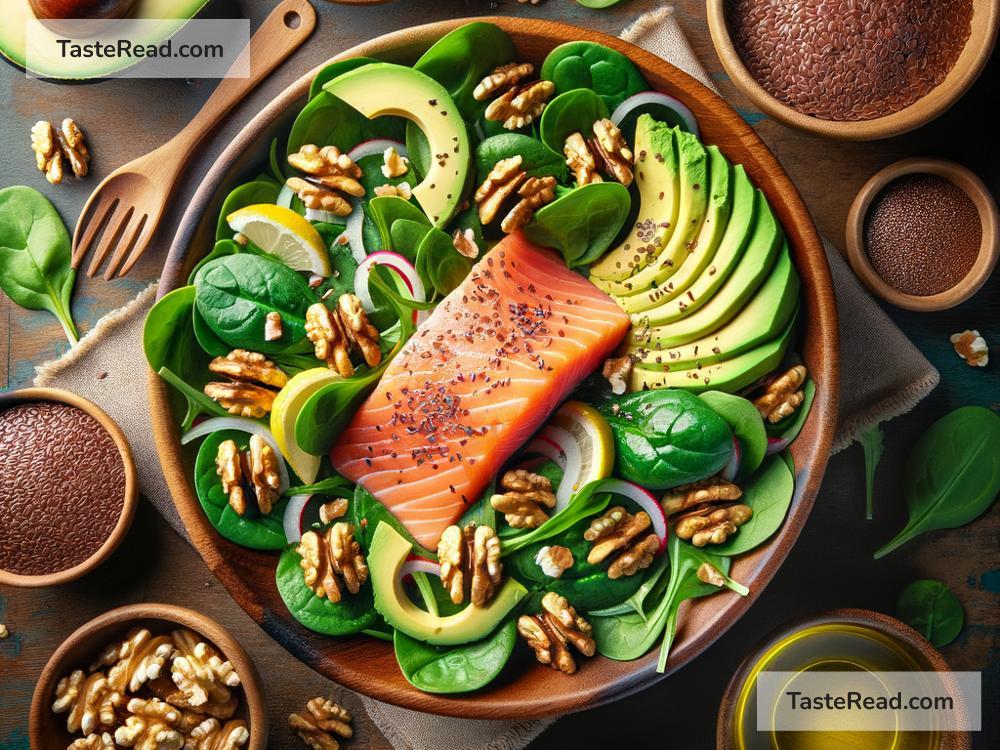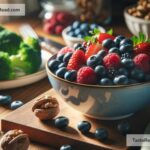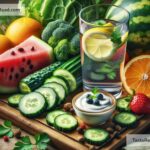Foods That Reduce the Risk of Dry Eyes
Dry eyes are an uncomfortable condition that many of us have experienced at some point. It’s that irritating feeling when your eyes feel scratchy, tired, and sometimes even like they’re burning. For some people, dry eyes can be a persistent problem caused by things like aging, staring at screens all day, environmental factors, or certain health issues. While blinking more and using artificial tears can help, did you know that your diet also plays a big role in keeping your eyes healthy?
Certain foods contain nutrients that help keep your eyes moist and reduce the risk of dry eyes. By incorporating these foods into your meals, you can help improve your eye health naturally. Let’s dive into the best foods to eat for happy, hydrated eyes!
1. Omega-3 Fatty Acids
Omega-3 fatty acids are like superheroes for your eyes. They help reduce inflammation in your tear glands, which is often a root cause of dry eyes. These healthy fats also improve the quality of tears, ensuring your eyes stay properly lubricated.
Foods rich in omega-3 include:
– Fatty fish: Salmon, sardines, mackerel, and tuna are excellent sources.
– Chia seeds: These tiny seeds are packed with omega-3s and are easy to add to smoothies or oatmeal.
– Flaxseeds: You can sprinkle flaxseed on yogurt or bake it into bread for an omega-3 boost.
– Walnuts: These crunchy nuts are not just a tasty snack but also a good source of omega-3s.
2. Leafy Green Vegetables
Leafy greens are loaded with lutein and zeaxanthin—antioxidants that protect your eyes from damage caused by sunlight and other environmental factors. These nutrients also support the health of your tear glands, helping them produce more tears.
Add these leafy greens to your plate:
– Spinach
– Kale
– Collard greens
– Swiss chard
Whether you eat them in salads, soups, or stir-fries, leafy greens are an easy and versatile way to promote eye health.
3. Vitamin A-Rich Foods
Vitamin A is crucial for maintaining the health of your cornea (the outer layer of your eye) and supporting tear production. When your body is low on Vitamin A, your eyes can dry out more easily.
Here are some Vitamin A-rich foods:
– Sweet potatoes: These are one of the best sources of beta-carotene, which your body converts into Vitamin A.
– Carrots: A classic eye-health food, carrots are easy to snack on raw or roast.
– Pumpkin: This fall favorite is loaded with Vitamin A and is delicious in soups, smoothies, or pies.
– Egg yolks: Egg yolks contain small amounts of Vitamin A and are also a good source of lutein.
4. Foods with Vitamin C
Vitamin C is another powerful antioxidant that helps protect your eyes from dryness by boosting collagen production. Collagen plays a vital role in keeping the surface of your eyes healthy.
Vitamin C-rich foods include:
– Oranges
– Strawberries
– Kiwi
– Bell peppers
– Broccoli
These foods are refreshing and easy to incorporate into your everyday meals, whether you’re making a fruit salad, smoothie, or vegetable stir-fry.
5. Vitamin E-Rich Foods
Vitamin E is great for combating dryness because it protects your eyes from oxidative stress and helps maintain the health of your tear ducts.
Stock up on these Vitamin E foods:
– Nuts: Almonds, hazelnuts, and sunflower seeds are particularly rich in Vitamin E.
– Avocados: This creamy fruit is not only delicious but also great for eye hydration.
– Whole grains: Foods like quinoa, brown rice, and oatmeal contain Vitamin E in smaller amounts.
6. Zinc-Rich Foods
Zinc is like a messenger nutrient—it helps your body transport Vitamin A from your liver to your retina, ensuring your eyes have the tools they need to function properly. Maintaining proper zinc levels can improve tear production and reduce dryness.
Zinc-rich foods include:
– Shellfish: Oysters and crab are among the best sources of zinc.
– Meat: Beef and poultry are solid zinc options for non-vegetarians.
– Beans: Chickpeas, black beans, and kidney beans are vegetarian-friendly sources of zinc.
– Pumpkin seeds: Perfect for a healthy snack or salad topping.
7. Water
It might seem obvious, but staying hydrated is crucial for preventing dry eyes. Dehydration reduces the level of moisture in your body, including in your eyes. Make sure to drink plenty of water throughout the day, and supplement with hydrating foods like cucumber, watermelon, and celery.
Final Thoughts
Dry eyes don’t have to be a permanent problem. By eating a balanced diet filled with nutrients like omega-3 fatty acids, Vitamins A, C, and E, zinc, and antioxidants, you can support your tear glands and help your eyes stay hydrated. Make sure to also drink enough water and stay mindful of how much time you spend staring at screens.
Start adding these eye-friendly foods to your meals today, and you’ll soon notice your eyes feeling fresher, healthier, and less dry. After all, the saying is true—“you are what you eat,” and this applies to your eyes, too!


